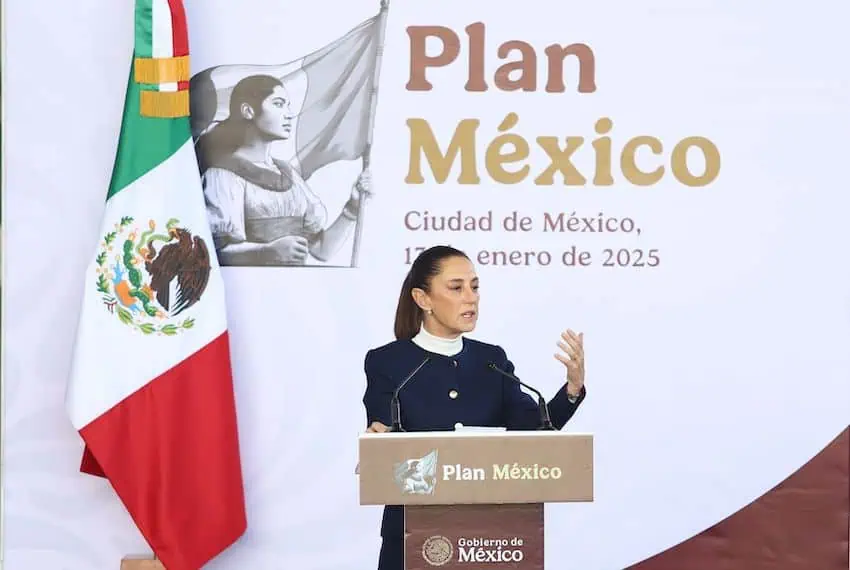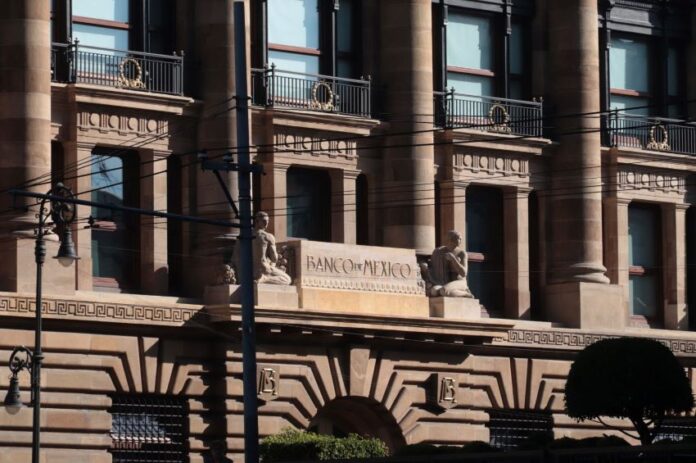Private sector analysts raised inflation expectations for Mexico for 2025 and lowered GDP growth forecasts to 1% in a new survey by the Bank of Mexico (Banxico) on Tuesday.
The analysts surveyed decreased their economic growth forecast for the year from a median amount of 1.12% to 1%. Meanwhile, they raised their Mexico inflation forecast for 2025 from 3.80% to 3.83%.

The analysts also said they expect the peso to weaken slightly this year and next in comparison to the U.S. dollar.
The survey polled 40 analysts between January 23–29, before the announcement of a month-long pause on U.S. tariffs on Mexican goods on Monday. This forecast may be revised depending on whether the 25% tariffs proposed by President Donald Trump on Mexican products are put in place.
A January Banxico survey had already lowered Mexico’s economic growth forecast for 2025 from 1.20% to 1.12%.
Meanwhile, the World Bank expected Mexico’s economy to grow by 1.5% in 2025, and Cepal — the Economic Commission for Latin America and the Caribbean — pegged Mexico’s growth rate at 1.2%.
By contrast, Cepal predicted a growth rate of 2.4% for the Latin American region.
In addition to the potential imposition of tariffs on Mexican goods, analysts blamed several other factors for the pessimistic growth forecast.

Mark Thomas, World Bank country director for Mexico, Colombia and Venezuela, highlighted water availability, energy supply and the cost of land as concerns, as well as insecurity, government policies and constitutional reforms.
Another factor analysts emphasized was that Mexico is not fully taking advantage of the nearshoring trend.
However, President Claudia Sheinbaum’s Plan México investment strategy, which she announced on Jan. 14, is expected to spur foreign investment in nearshoring activities and drive economic growth across Mexico over the next three years.
The plan aims to create new industrial corridors over all 32 of Mexico’s states, strengthen Mexico’s regional market, and introduce a law to cut Mexico’s amount of bureaucratic red tape, among other investment-friendly initiatives.
With reports from Reuters, Expansión and El Economista
